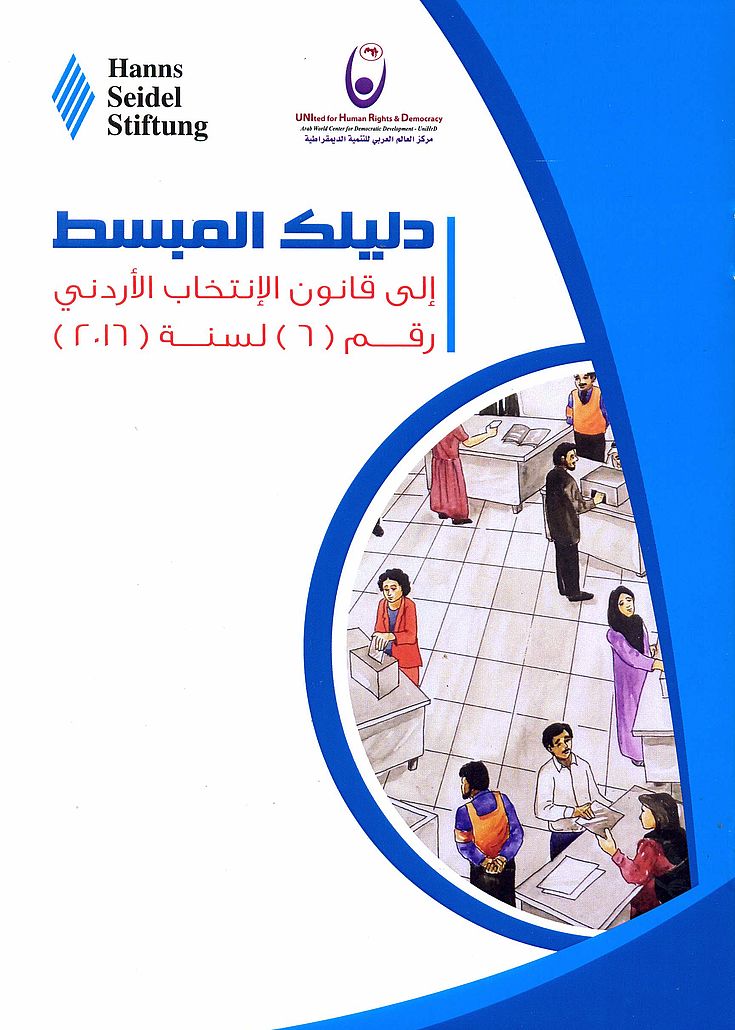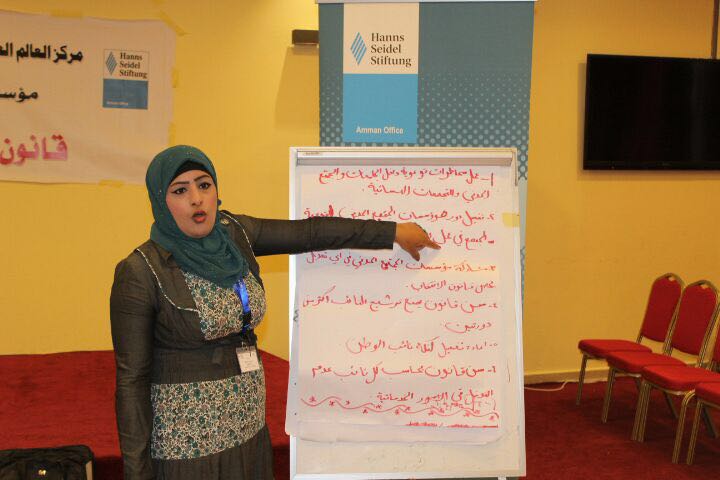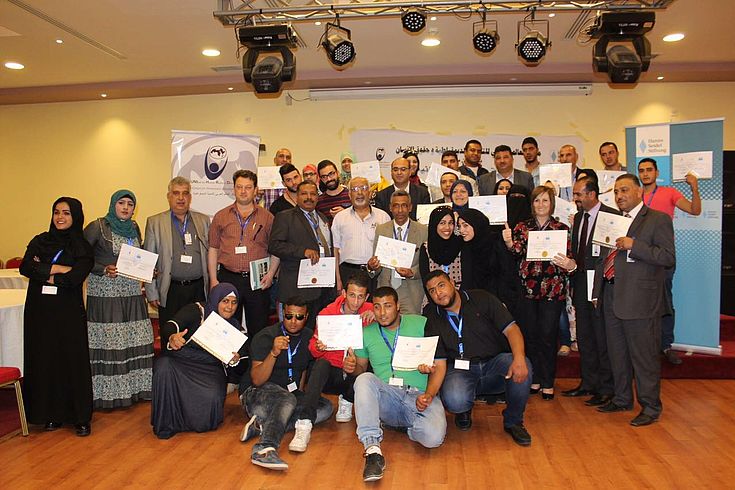What's happening at HSS?
Workshop on 'Jordan's 2016 Election Law', April 19 - 20, 2016 in Amman / Jordan
Election Law 2016 - New Guide published by UniHRD and Hanns-Seidel-Stiftung
The objective of Jordan's political reform is the promotion of the role of citizens in political life and the decision-making process. The parliamentary elections scheduled for the second half 2016 constitute a key milestone on the path of democratization.
For the first time, the Election Law adopted the concept of proportional representation on the national level to pave the way for the emergence of political blocs and coalitions, which will help in consolidating partisan work and spreading democratic culture.
The main goals of the workshop, which was carried out in cooperation with the Arab World Center for Democratic Development - UniHRD', could be summarized as follow:
- to explain the new Election Law, its terms, the advantages of the proportional system, the division of the electoral constituencies, the distribution of seats, quotas, the method of voting and the sorting and calculation of the winners in the seats
- to encourage young people to participate in the elections
- to encourage young people to follow-up on the news, interact with media outlets, write and talk to their candidates and MPs, and also to monitor their 'leaders’ performance and continuously question their positions when they are in office
UniHRD and the Hanns-Seidel-Stiftung are aiming to encourage youth to be active in shaping the future of Jordan through voting in elections, volunteering and a commitment to democracy as a national way of life.
Students from various universities in Jordan and from various governorates, members of political parties, journalist, various NGO” s and Jordanian Initiatives as well as representatives from the Ministry of Political Development took part in the workshop.
During the workshop, the participants have discussed the role of citizens and candidates. Voters have a national responsibility to debate and discuss with candidates their positions on key issues facing the country and base their vote on their programs, not on personal relationships and affinities.
The participants have emphasized that citizens’ practice of their electoral rights and duties is vital, as they have been empowered by the amended constitution in all decision-making processes.
Candidates should not be campaigning for the right to sit in Parliament and earn personal gains. They should compete for the responsibility to take decisions and choices that affect all Jordanians.
The political process is an opportunity for fair competition to generate the best ideas and solutions and all people have an equal chance to participate in the political process equally.
.... and group photo of participants.
A lively debate has arisen with regard to the women's quota. Gender quotas in the Jordanian parliament were first introduced in 2003, with 6 seats reserved to women, raised in 2010 to 12 seats, and in 2013 to 15 seats. Some participants argued, that woman in Jordan can be successful without the quota law. The quota system can make women seem as if they are not earning their positions in the same way as their male counter-parts. Other pointed out that those laws are necessary for a temporary transformational period of time until the society (in particular also female voters!) can really see and are convinced that women can do the job equal to men.



